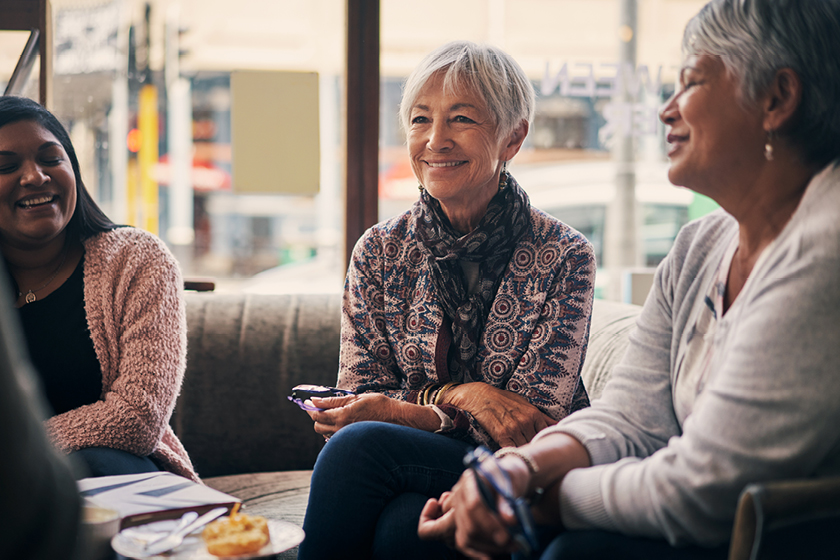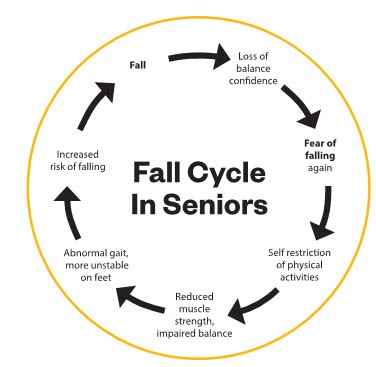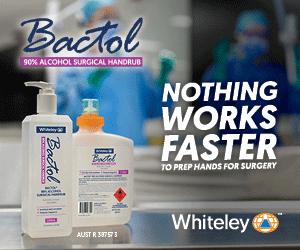

Experiencing a fall in the previous year has been demonstrated to be significantly associated with a fear of falling, and the frequency of this fear could be as high as 75% among community-residing seniors who have experienced a recent fall.1
The threat that falling poses can also be exacerbated by a ‘long lie’. Those who receive delayed care after a fall or other health-related event at home (i.e. a long lie-time) are more likely to require long-term age-related residential care after hospital discharge versus those who receive assistance more quickly.2
And that, in turn, can pose significant threats to your older patients’ well-being and independence.
The risk to seniors’ independence
Living at home allows older adults to maintain greater control over their lives and self-identity, and it also encourages interactions with family, friends, and the community, which are critical sources of practical support and social connection for seniors.3
The home, however, is the most common location to have a fall.4
With a fall having the potential to cause a significant injury or fracture, and with one in three community-residing seniors aged over 65 experiencing one every year,5 falls pose a serious risk to independence.
How you can support the independence of senior patients
A clear understanding of these factors can lead healthcare professionals to take action to support the independence of their older patients.
One such action could be to recommend the use of a medical alarm. These devices can help support a patient’s goal of living at home, by enabling timely intervention should they experience a fall or other health-related event and can provide an added layer of protection if there’s no other support in place.
The perceived benefits of medical alarms reported by community-residing seniors include reduced anxiety about falling, increased confidence in performing activities of daily living, and extending the time they can remain living at home.6,7
Although it is not practical to watch over your patients all of the time, with a St John Medical Alarm senior patients in your care stay at home knowing that they can access help 24/7 if needed, giving them the peace of mind and reassurance to live an independent life, and to stay at home for longer.
A St John Medical Alarm is the only medical alarm that connects directly to Hato Hone St John. All patients are eligible for a free trial, and referral is a straightforward process through your Practice Management System via Healthlink or ERMS.
For more information visit: stjohnalarms.org.nz/hcp
References
- Chen W-C, et al. The relationship between falling and fear of falling among community-dwelling elderly. Medicine. 2021;100(26):e26492.
- Gurley RJ, et al. Persons found in their homes helpless or dead. NEJM. 1996;334(26):1710-1716.
- Rose K, et al. Experiences of ageing in place in Australia and New Zealand: A scoping review. JCASP. 2023;33(3):623-45.
- ACC 2018. What’s tripping us up? How Kiwis are falling over.
- Soriano TA, et al. Falls in the community-dwelling older adult: a review for primary-care providers. Clin Interv Aging. 2007;2(4):545-554.
- De San Miguel K et al. Personal emergency alarms: What impact do they have on older people’s lives? Australas Journal on Ageing. 2008;27(2):103-105.
- De San Miguel K, et al. Personal emergency alarms: do health outcomes differ for purchasers and nonpurchasers? Home Health Care Serv Q. 2017;36(3-4):164-177.
This advertising content was paid for by Hato Hone St John. Hosted content may not represent the views of Kaitiaki Nursing New Zealand or the New Zealand Nurses Organisation.






